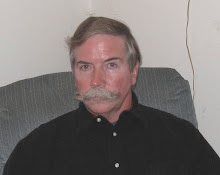Anthony Esolen, a
professor at Thomas More College of the Liberal Arts in Merrimack,
New Hampshire and recently of Providence College, Rhode Island, has
written a stinging critique of modern education and American society
in general titled Out Of The Ashes: Rebuilding American Culture
published by Regnery Publishers, 2017.
It's a short book -
203 pages – but contains much wise social commentary and
observations on everything wrong with American education, if there's
any such thing. Esolen is not one to beat around the bush. If you
don't agree with him it isn't because he is opaque. For instance,
chapter one is titled, Giving Things Their Proper Names: The
Restoration Of Truth Telling. It is divided into several sections
with their own headings, one of which is Are We a World of Liars?
“In a word, yes.
It is almost
impossible in the modern world not to accept lies as a matter
of course. We are told that a woman can make as good a soldier as a
man. Except for the rare amazon, that is a lie”
In the same vein a
few pages later: “Here is a quick and generally reliable rule to
follow. If people have always said it, it is probably true; it is the
distilled wisdom of the ages. If people have not always said it, but
everybody is saying it now, it is probably a lie; it is the
concentrated madness of the moment.”
Most of what he says
in the book is glaringly obvious, but it is so seldom spoken or
written that it becomes heroic when written or spoken audibly. When
referring to teachers who have acquiesced to imparting depravity, he
writes:
“It will not do
merely to restrain them in this or that regard. They are not fit to
teach your children the multiplication table. They are not fit to be
near them at all. Every moment that your children are in their
presence, they will be breathing the putrescent air from the diseased
heart and spirit of the instructors, in an institution whose walls
stink of it, it has lingered there so long.”
Just a few years
ago, in the memory of almost everybody, a statement like,“First let
us establish that there are such things as the sexes.” would have
met with everybody's assent. Most people reading it would be
wondering why such a thing would need to be established at all. Now
such a proposition is not just questionable, it might even be
“controversial” or hate speech or some kind of micro aggression.
Esolen is such a
hater (maybe even a Neanderthal) that he writes:
“We are taught
from the time we enter the indoctrination centers that the only
differences between men and women are trivial matters of
plumbing. It is not true.
When the European
missionaries came to the new world to evangelize the natives, they
did not find creatures of a different species. They found human
beings, male and female. They did not find any tribes in which the
women met in council, hunted the large animals, smoked the peace
pipe, trained up their daughters in savage displays of physical
courage and endurance (the “sun dance” of the Plains Indians, for
example) and established elaborate hierarchies of honor. They did not
find any tribes in which the men took care of small children,
gathered roots and berries, made themselves up with pretty
decorations to delight their women … and made “nests,” as it
were, as clean and neat as possible, for the sake of the little ones,
and because that is the way they liked things best.
They found men and
women. That is what you will find wherever you go in the world.”
I can't disagree
with any of his assessments about the shipwreck of the schools or his
suggested remedies. The one thing I think is absolutely essential
that isn't mentioned and is never mentioned by anybody in the
reformist camp is the necessity of prohibiting government involvement
of any kind in schooling or anything else having to do with forming
thoughts, opinions or beliefs. No matter who is in charge, be it
Aristotle, Pythagoras, Isaac Newton or Erasmus, they won't always be
in charge, and the forces of coercion will always seek control. All
compulsion should be eliminated. Certainly there will be parents that
don't send their children to school or teach them themselves, but
there always have been and always will be unfit parents. Compulsory
schooling has always been about teaching children the “right”
things, not about education.
This is a book that
will be appreciated by anybody interested in the social, cultural,
educational and intellectual collapse of society and its possible
remedy.
